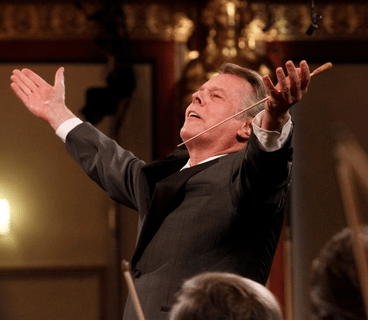Part of the magic of the New Year’s Day concert from the Vienna Philharmonic is knowing that millions are watching the same event live, right throughout Europe. It’s perhaps the only cultural event that unites the continent in this way (other than Eurovision).
Politically and economically, not very much binds us together, as the tensions within the European Union demonstrate. The continent is a model of diversity, which is why homogenisation attempts fail. But when it comes to culture, it’s a different story altogether — with classical music being, perhaps, one of the strongest unifying factors. Turn up to a concert hall in Edinburgh, Leeds or Athens to listen to classical music, and the odds are it’ll be from a relatively small number of central European composers. James Rhodes, the pianist and Spectator contributor, argues that these composers endure because their repertoire spans the complete musical range. And its richness, even now, sustains a continent.
It sustains even more than that, of course. The Austrian, Italian and German greats still dominate most opera halls in most Western cities from Sydney to Los Angeles. Today’s Neujahrskonzert is also being broadcast, by Eurovision, from China to Swaziland.
About 40 million Europeans will be curling up on the sofa, tuning into the Großer Saal, and letting Strauss soothe the effects of their hangover. That’s my kind of European integration.







Comments